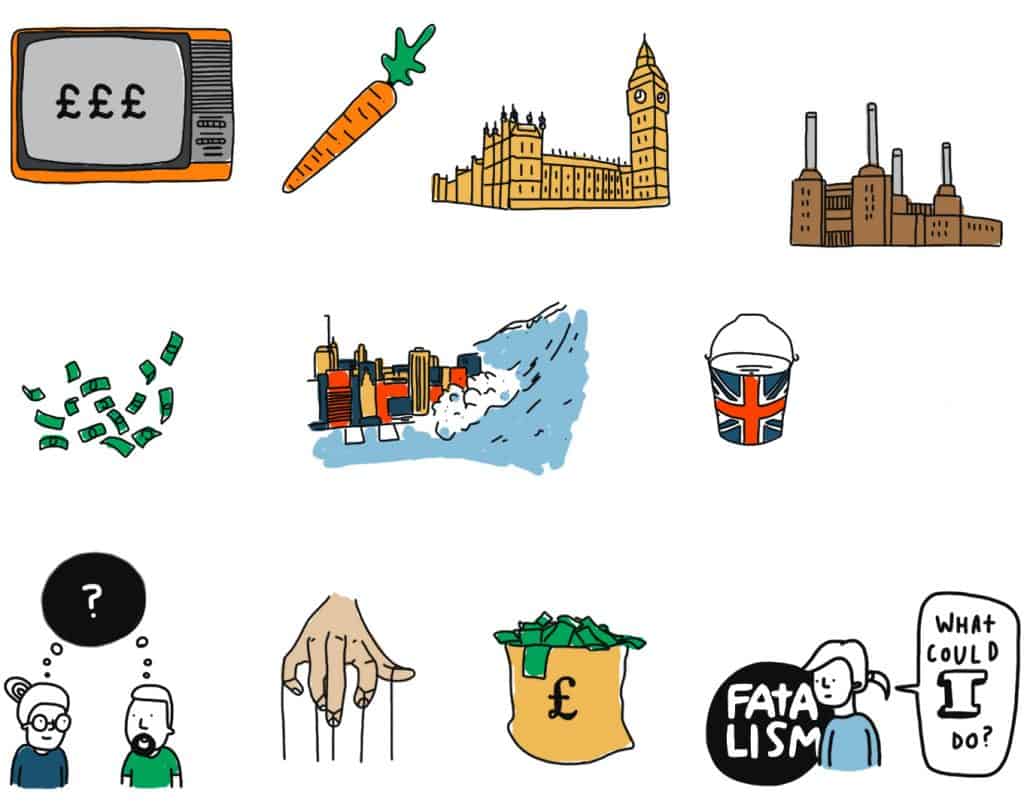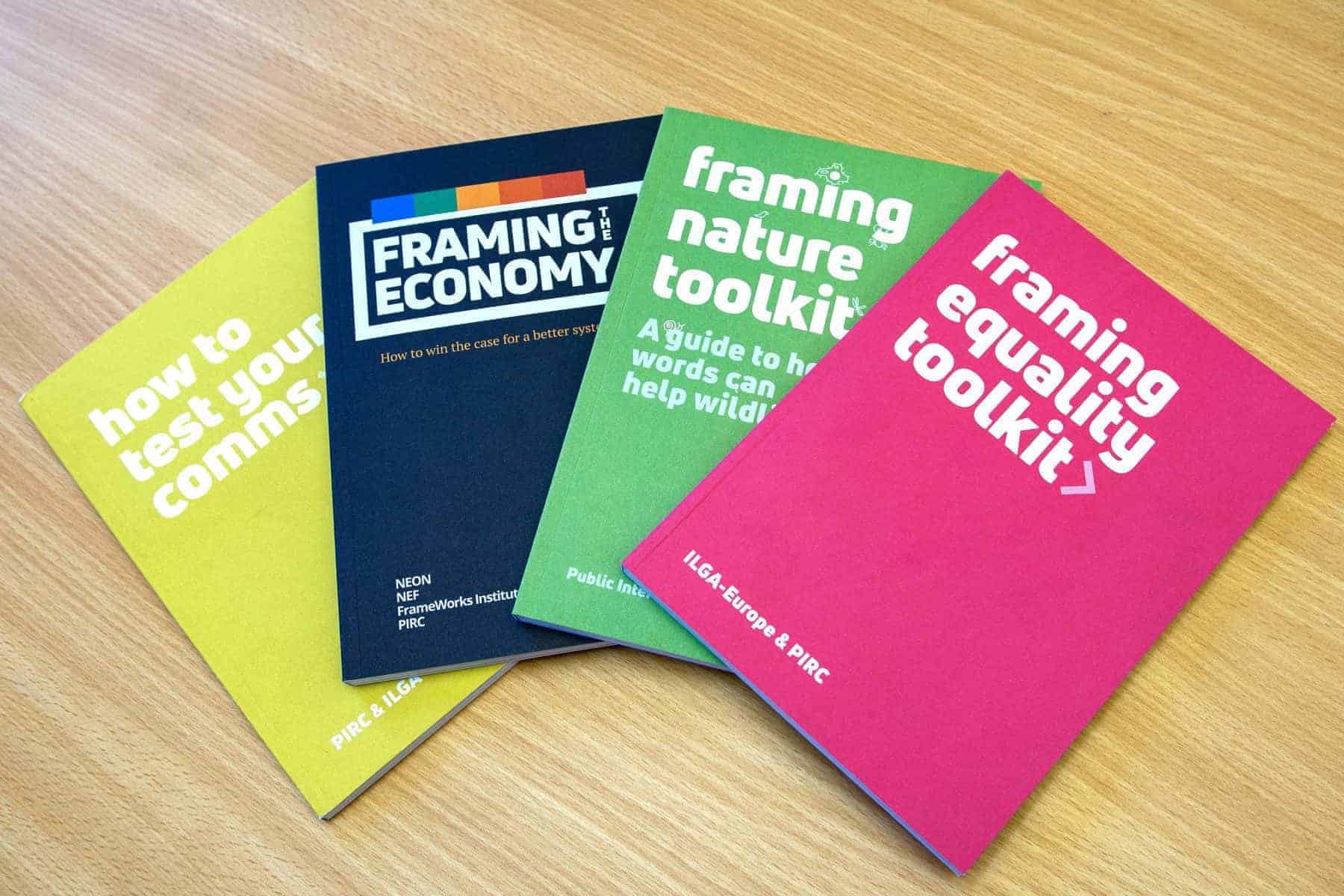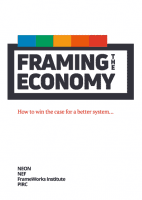I love the work Framing the Economy has done—the task of linking the climate with inequality and economics is central to helping us tell a new story that gives us the courage to change the system. Even more impressive is building the communications infrastructure or organising power needed to actually tell the story, linking up across countries. This is exactly the kind of work that’s needed right now and we should all back this project.”Naomi Klein, Author & Journalist
Framing the Economy was a collaboration between PIRC, the New Economics Foundation, the New Economy Organisers Network and the FrameWorks Institute. Over two years, we worked together to find out how people across the UK think about the economy—and how civil society campaigners can use this understanding to better communicate.
During the project we undertook in-depth interviews, surveys, focus groups and literature reviews. We worked with a network of new economy campaigners and spokespeople, and designed and facilitated participatory workshops to help campaigners and communicators apply this research to areas such as housing, tax justice and regulation.
The economy is a collection of a human systems, invented to help us harness resources to provide for human needs, inside or outside the marketplace. Through different stages of research and consultation, we found that the way people think about these systems is deeply affected by which stories of the economy are told, how often, and by whom. For example, metaphorical language that likens the economy to a weather system (e.g. ‘waves’, ‘tides’, ‘plunge’, ‘storms’) suggests that the economy is a self-governing and mysterious force best left to its own devices—a way of thinking that can justify a laissez faire approach to governance.
During the latter stages of our research, we focused on creating and testing new stories that shift thinking and build support for a new economy. We found that language implying human design and intervention (e.g. ‘reprogramme’, ‘building economic tracks’) can overcome people’s fatalism and motivate support for more transformational policies.
Our Framing the Economy report outlines how the British public think about the economy and offers two new story strategies to help change the narrative.
We are continuing to carry out research and training to help civil society groups organise and frame more effectively: if you want to find out more, get in touch!
.
This project is essential. Both for coming up with a new story on the economy but also because, for once, it’s putting the best people in the same room to start actually working together. Unless we start this kind of coordination we’re going to continue to lose on the big structural questions which have made themselves felt across the west over the last couple of years. I’m also excited that we’re finally talking practically about what organisations and networks are going to be needed to communicate this story—we’re being out organised on the right and we’ve got to turn that around with a proper strategy.”Gary Younge, Journalist, Author & Academic
.








